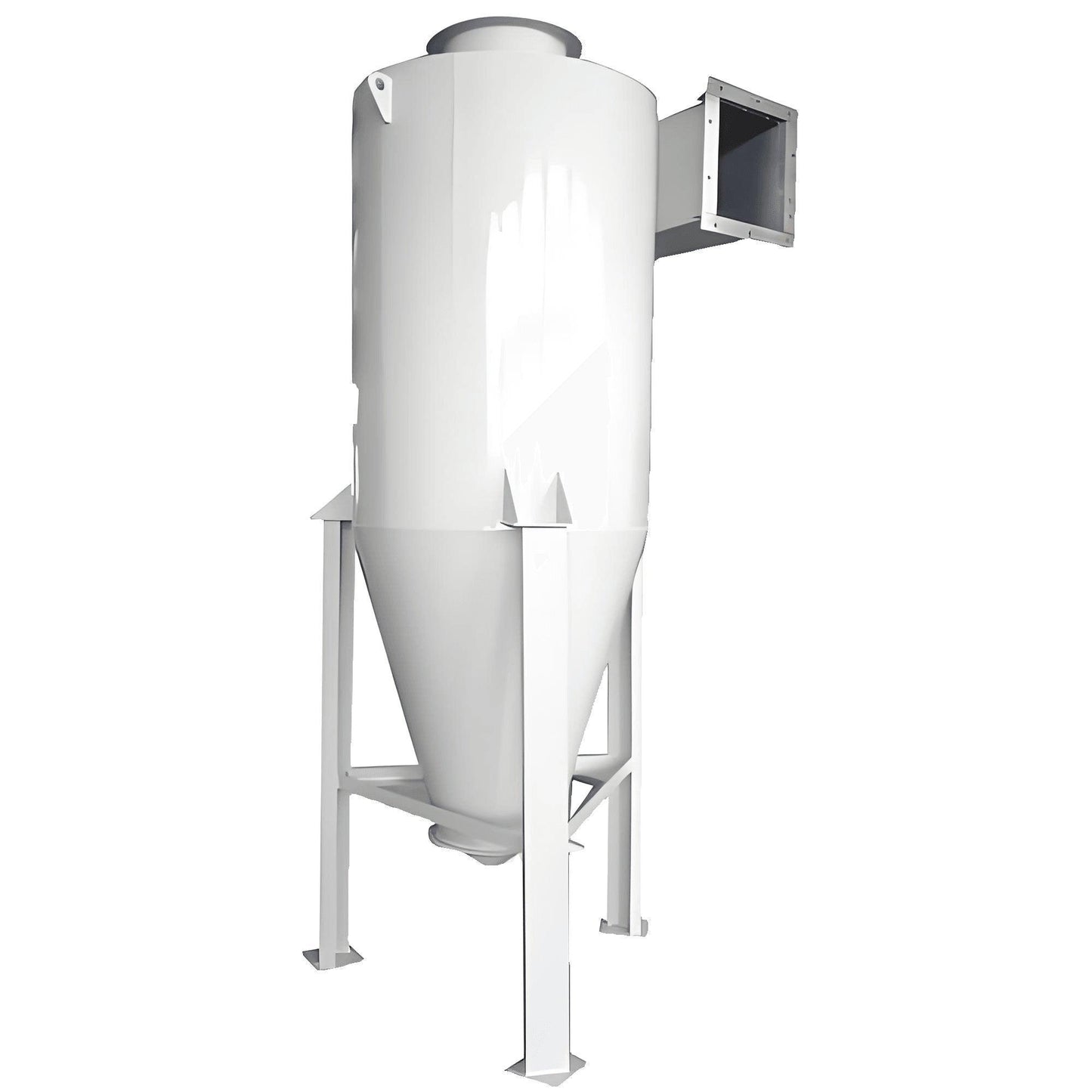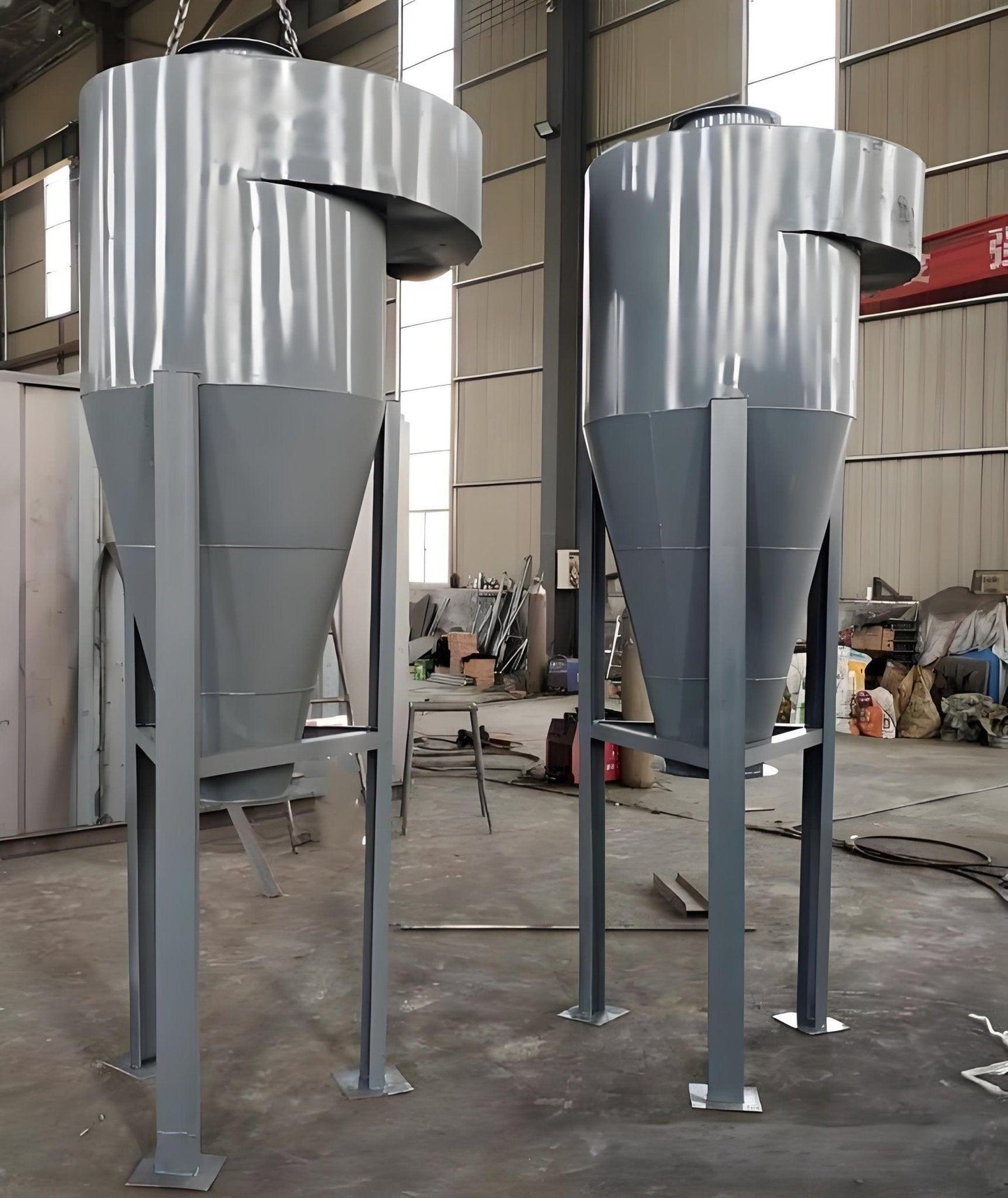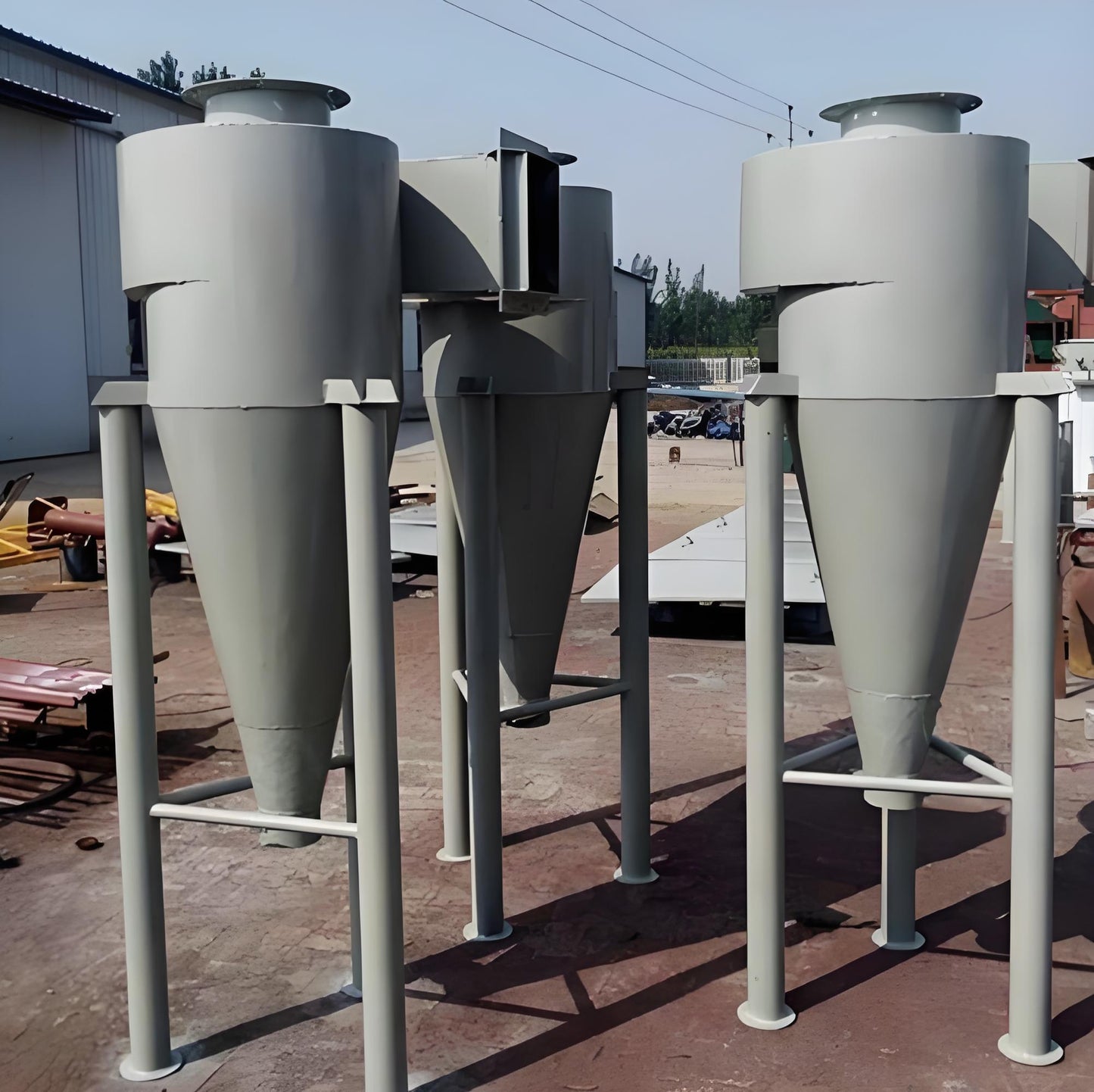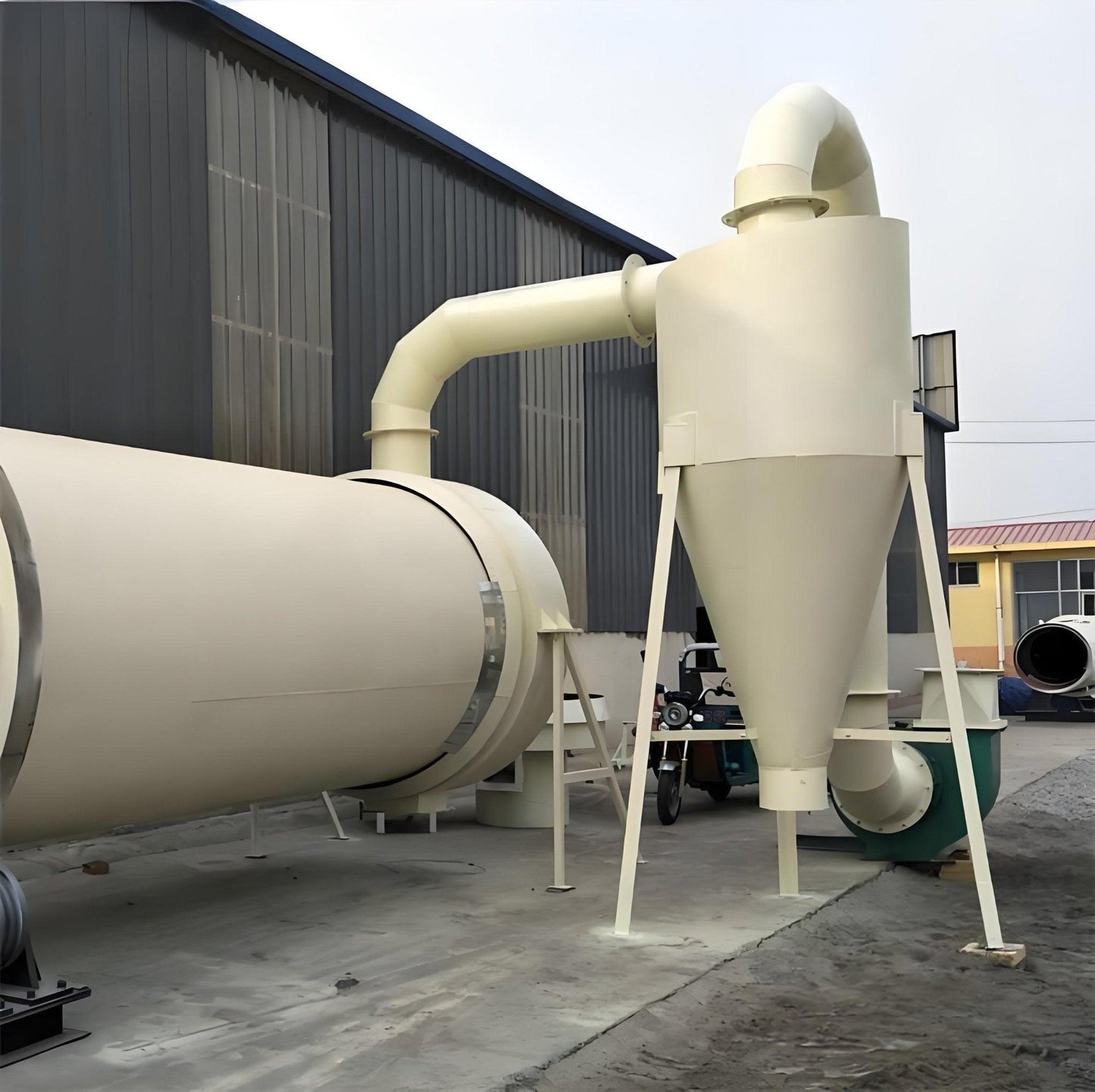
1
/
of
4
Cyclone Dust Collector
Cyclone Dust Collector
Share
A Cyclone Dust Collector is an air pollution control device designed to separate and remove particulate matter from a gas stream using centrifugal force. It is widely used in various industries, including construction, mining, and manufacturing, for effective dust management.
Key Features
-
Centrifugal Separation:
The cyclone operates by creating a vortex that spins the incoming air, causing heavier particles to be thrown outward against the walls of the cyclone and collected at the bottom. -
Simple Design:
Comprising a cylindrical body, conical section, and dust outlet, the cyclone has a straightforward structure that is easy to manufacture, install, and maintain. -
Low Operating Costs:
With no moving parts, cyclone dust collectors require minimal maintenance and have low operational costs compared to other filtration systems. -
Versatile Applications:
Suitable for removing larger particles (typically >5 micrometers) from air streams in various processes such as grinding, milling, and material handling. -
High Efficiency for Coarse Dust:
Cyclones can achieve separation efficiencies of 80-90% for larger particles, making them effective in pre-collection applications before finer filtration systems.
Working Process
- Air Intake: Contaminated air enters the cyclone through an inlet at an angle.
- Centrifugal Action: As the air spirals downwards, centrifugal force separates heavier dust particles from the air stream.
- Dust Collection: Particles are collected at the bottom of the cyclone while cleaner air exits through the top.
- Discharge: Collected dust is removed from the bottom outlet for disposal or recycling.








